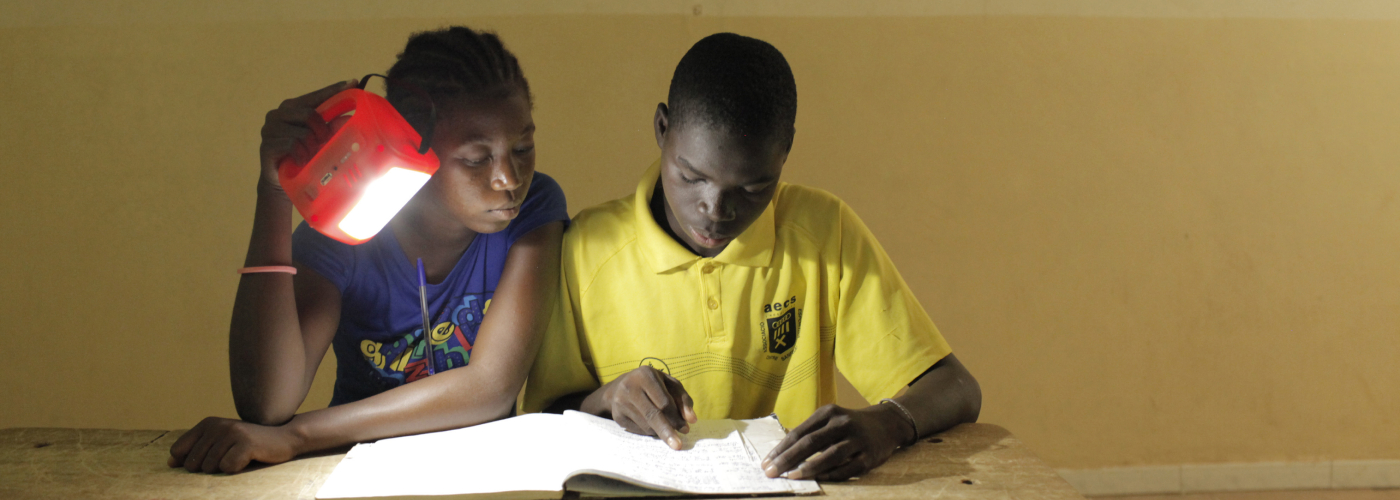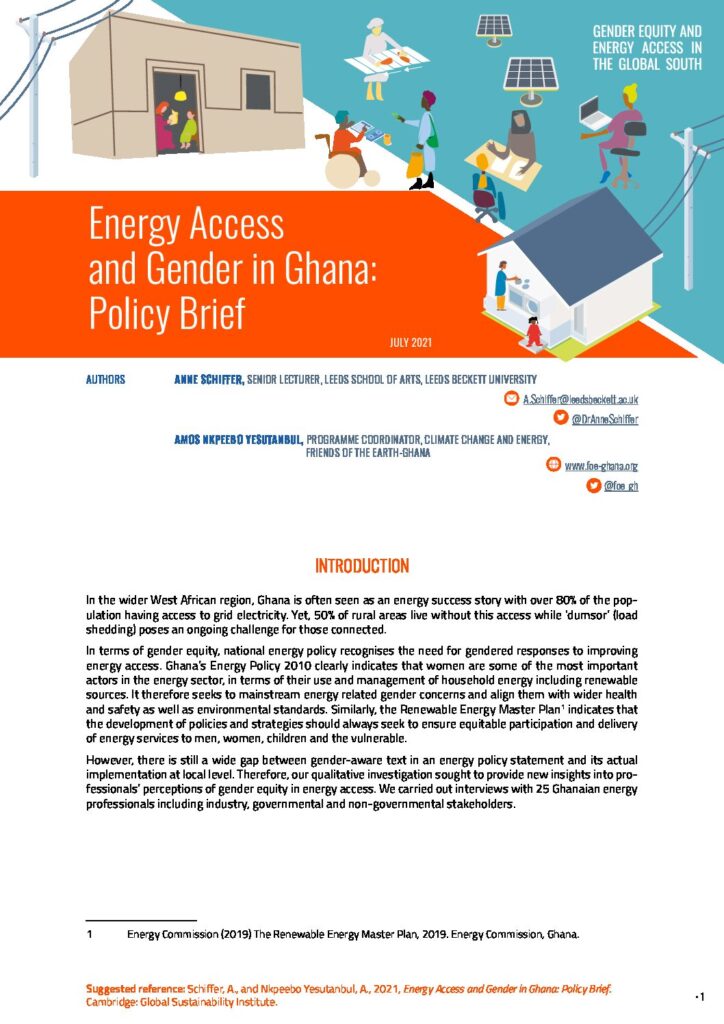In the wider West African region, Ghana is often seen as an energy success story with over 80% of the population having access to grid electricity. Yet, 50% of rural areas live without this access while ‘dumsor’ (load shedding) poses an ongoing challenge for those connected.
In terms of gender equity, national energy policy recognises the need for gendered responses to improving energy access. Ghana’s Energy Policy 2010 clearly indicates that women are some of the most important actors in the energy sector, in terms of their use and management of household energy including renewable sources. It therefore seeks to mainstream energy related gender concerns and align them with wider health and safety as well as environmental standards. Similarly, the Renewable Energy Master Plan indicates that the development of policies and strategies should always seek to ensure equitable participation and delivery of energy services to men, women, children and the vulnerable.
However, there is still a wide gap between gender-aware text in an energy policy statement and its actual implementation at local level. Therefore, our qualitative investigation sought to provide new insights into professionals’ perceptions of gender equity in energy access. We carried out interviews with 25 Ghanaian energy professionals including industry, governmental and non-governmental stakeholders.








